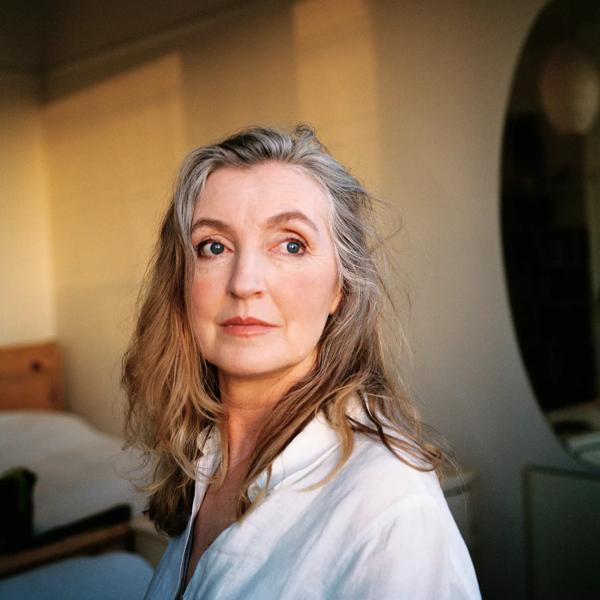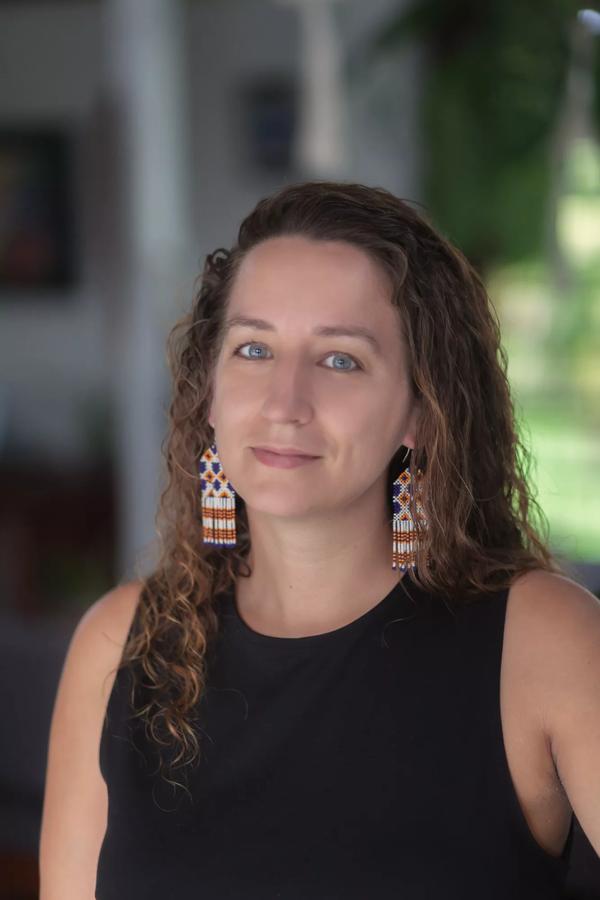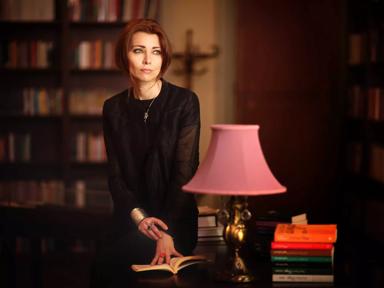Writing for the planet: Writers respond to the climate crisis

‘Finding metaphors, analogies, tangible ways of understanding the climate beyond the catastrophes is a challenge, and finding ways to see what’s possible and positive in our response is likewise one.’
Rebecca Solnit is one of a number of writers whose work is increasingly drawn to the subject of the climate crisis. In 2023, our Planet Summer series saw us host talks and conversations from many of these writers as we looked at the effects of the climate crisis on the world around us, and on ourselves, how things got to this point, and seek to identify ways in which we can look to change the course of life on our planet. Ahead of Planet Summer, we put some questions on writing and the climate crisis to four of the writers who would later join us at the Southbank Centre for the series.
Rebecca Solnit is the author of more than 20 books, including Orwell’s Roses, Hope in the Dark, Men Explain Things to Me and A Field Guide to Getting Lost. A longtime climate and human rights activist, she serves on the board of the climate group Oil Change International, and the advisory boards of Dayenu and Third Act. Thelma Young Lutunatabua is a digital storyteller and activist and co-founder of Not Too Late, a project to invite newcomers to the climate movement, and provide climate facts and encouragement for people who are already engaged but weary. Together Solnit and Young Lutunatabua produced the book, Not Too Late: Changing the Climate Story from Despair to Possibility, which they joined us to discuss here at the Southbank Centre in July 2023.
James Miller and Jay Griffiths are part of Writers Rebel, a group of established writers within Extinction Rebellion that formed in 2019. Miller, a founding member of Writers Rebel, is the author of the novels Lost Boys, Sunshine State and UnAmerican Activities. Griffiths is the author of books including Wild: An Elemental Journey and Why Rebel. A winner of the Orion Book Award she has also written for Radiohead and the Royal Shakespeare Company.
When did you first become aware of the need to take action to preserve our planet’s future?
James Miller
I feel as though this need has always been with me on some level. As a child I remember reading books like The Giving Tree and Laurie Glick’s The Last Forest which told powerful stories about our reliance on the natural world; I also read a lot of dystopian, dark sci-fi comics – 2000AD, Judge Dredd – and between them, these two visions of the world had a profound impact on my imagination and gave me a very clear idea of where we’re headed if things don’t change. For most of my life I’ve felt uneasy with the way in which we behave towards our natural environment – the destruction, the waste and for what – mostly buying stuff we don’t need or doing things that don’t really bring us happiness. I’ve been worried about climate change for over 20 years, all this time thinking ‘the people in power will sort this out, this is really serious’ only to realise they’ve done too little, too late and that very powerful, very wealthy vested interests continue to stand in the way of meaningful action.
Jay Griffiths
It was a slow dawning during my twenties that what I loved was under threat; that trees were falling to concrete. It was a sharper and more sudden knowledge during my thirties that the climate crisis was threatening to everything that anyone might love. During my forties it seemed that there was a mantle of responsibility on all of us alive today, to dwell in part in the future-truths of the climate crisis, in order to properly see the present.
‘The climate crisis won’t be taken seriously enough until we are doing everything we can to steer toward the best-case scenarios rather than still drifting toward the worst’
How central is the climate crisis to your creative work, and has this changed over time?
Rebecca Solnit
I’ve made a conscious decision to centre climate in my political and literary work. I’ve been writing about it and attending protests and supporting climate groups for at least 15 years, but it was time to step it up. It’s not easy creatively, at least compared to the feminist issue of violence against women I was writing about a lot circa 2008 to 2018; we understand what it is to be embodied, to be violated, what human rights are in such a visceral way, whereas climate is about the upper atmosphere, the oceans, the connections between our actions and their consequences – there’s nothing obvious and often nothing even visible about it, and often you have to absorb a fair bit of science to comprehend it. And so I’m awed that we have somehow managed to make so many people conversant with and concerned about the facts of this complex reality. Finding metaphors, analogies, tangible ways of understanding this beyond the catastrophes is a challenge, and finding ways to see what’s possible and positive in our response is likewise one, but one I welcome.
James Miller
I first wrote about the climate crisis in my 2010 novel Sunshine State which is a sort of cli-fi dystopia set in a storm ravaged near future Florida, with society in a state of collapse. The novel was very much influenced by Hurricane Katrina which really seemed like one of those wake up moments when, of course, everyone failed to wake up. I remember The Times gave the novel a stinky review, saying the scenario was completely unrealistic – unfortunately, over time, the set up has come to look not only realistic but all too likely. I’m not sure if that novel was particularly successful in highlighting the emergency or showing us anything new but since then the crisis is a constant background noise in all my work – it is (literally and figuratively) ‘the weather’, always there, even if not an up-front theme. Unfortunately, I’m still being told that books about the climate crisis ‘don’t sell’ even though it’s the only story we really have left.
Thelma Young Lutunatabua
My creative work has always leaned into politics and social justice, and I think that’s because these spaces are where real life conflicts take place that matter on a deep personal level. In the quest of striving, there is the desire to create something better – not just imaginary, but tangible. What I’ve also learned about creativity and social change too is that it can really come alive through community, when it’s lots of people coming together to co-create. I’ve been lucky enough to work alongside Burmese hip hop artists using music to fight against a dictatorship, young refugee kids using theatre to promote their rights and now with this book and our collection of contributors. I wasn’t always a climate activist, but instead followed the progressions of gender justice, human rights onto climate, and thus seeing how it’s all connected.
How has writing helped you to understand your own place in our natural environment?
Rebecca Solnit
I want to reverse that to say the natural world has made me a writer, and my writing has, almost since the beginning, been about nature, place, geography, landscape, ecology and human perspectives on all these things. Almost all our metaphors come from the natural world, from places, weather, natural systems, animals, agriculture, embodiment, and I’ve always wanted to advocate for the natural world as not only crucial for our physical and spiritual survival but our imaginative survival too. Writing is not just typing while sitting down – it’s thinking about the world and finding the ideas and language, and often for me this happens while wandering in the natural world and contemplating what’s beyond myself.
Thelma Young Lutunatabua
A common practice you hear from writers is that our best work doesn’t come from us. I’ve deeply felt the inspiration of the muses, and my creativity flourishing when I’m not looking inward, but instead tuning into the environment around me and channelling what needs to come. I am at my best when I release my ego and tap into the relationality of our world. Our world is such a noisy, clamorous space and it’s so difficult to listen if we don’t embrace the quiet.

How important do you feel the written word is, or can be, in the fight against the climate crisis?
Rebecca Solnit
It’s crucial to all of it, and I’m not sure I’d separate written from spoken, live and on videos, and of course written words on placards and banners in demonstrations matter, as do scientific articles, the text of climate lawsuits, and good journalism, as well as more metaphorical or evocative or personal essays that connect people to the issues, impacts, and possibilities.
James Miller
A big question, and hard to answer. Of course, the comforting answer we all want to hear is ‘oh yes, the written word is very important’ and we can talk about how stories help us see the world and how words can have profound emotional impacts or create a change of consciousness. And all that is true but, at the same time, words are quite powerless – they are too slow, too mannered, too niche, their appeals lie with people already convinced of the emergency; too often reading and feeling can be a substitute for action. And this is much more what I feel we need today, actions, bodies in streets, people doing things, causing a fuss, mobilising, uniting, disrupting, upsetting and embarrassing the powerful and powerful vested interests. We can’t pretend that reading the right books and having concerned thoughts is enough.
Thelma Young Lutunatabua
I embrace all forms of storytelling, and I think all are necessary in this struggle. We have to tap into people’s imaginations and show them that another world is possible. Whether it’s the written word, films, dance or even fashion, I would call on anyone with a creative inclination to use your skill to show what we must fight against and what we need to build as its replacement.
Jay Griffiths
I have found the climate and ecological emergencies central to my life and yet sometimes hard to write about because it is like a black hole that in its enormity devours meaning and significance. So much of writing is about the precious detail and the individual, and the climate emergency trounces all that. And yet and yet and yet: every cliche leaves us lonely, and as writers we are tasked to find the unexpected and the most fully truthful ways to be a good messenger.
Do you feel the climate crisis is being taken seriously enough by the people best placed to do something about it?
Rebecca Solnit
It won’t be taken seriously enough until we are doing everything we can to steer toward the best-case scenarios rather than still drifting toward the worst (or being shoved there by the shortsighted profiteers of fossil fuel). But who are the people best placed to do something about it? I think you mean politicians and other people officially endowed with power, but I think the real goal of the climate movement is to so motivate and stir global civil society that we become what in 2003 was called ‘the world’s other superpower’. We can be powerful enough to bend those politicians and financial systems to our will, but it’s a massive effort and while we’ve achieved a lot we’re far from achieving what’s needed.
James Miller
The scientists are taking it seriously. The media and politicians, less so. Those with the power to make a difference are, on the whole, delaying the action we know must be taken. Business and the influential wealthy elite are a more complex picture, clearly some of them are very worried – but again, few can envisage solutions that risk their own interests and so, up to a point, they still aren’t taking it seriously enough. So, we still await their final realisation – that all business interests are meaningless in the context of climate collapse.
Thelma Young Lutunatabua
There’s a new form of climate denial now. Those in power accept science and recognise what’s happening, and yet they still make choices that are severely damaging to humanity. This intentional cruelty is selfishness on a whole new level. It’s putting one's own political or monetary gains above the greater good. We see banks now no longer insuring homes because of climate impacts, and yet those same banks still fund fossil fuel projects that inflame the crisis more. What we want to make clear though with Not Too Late is that the people best placed to do something is us. We can’t wait for politicians or businesses to grow a conscience. It’s going to take immense organising from us collectively to force them to look beyond themselves.
Jay Griffiths
The climate crisis is not being attended to by those in power, obviously in politics but far more seriously in the media. There is a crisis of imagination here, and the media has an almost ineluctable devotion to reporting on everything that doesn't matter. We are looking at something utterly sensational (in an appalling sense of the word) and we have a media that adores sensationalism. And yet a kind of banality and ignorance in the media means that even when climate is covered, it is still rendered as a subject that is dull (of all things) and sciencey and worthy.
‘The best thing an individual can do for the climate is to stop acting like an individual… you will feel more hopeful when you can look around and see that you aren’t alone in this struggle’.
It’s easy to feel helpless in the face of the current climate crisis, so lastly can you give us some hope or some advice on positive action we can take as individuals?
Rebecca Solnit
Not Too Late is about exactly this. Thelma and I believe a lot of the despair, surrender, inaction, and anxiety comes from bad frameworks and bad facts. A lot of people simply believe factual things that are not true – that no one cares, we don’t have the solutions, it’s too late, etc. Or they have frameworks about how change works and where power lies or who’s to blame (when they blame human nature instead of the vested interests who oppose what the public really does want now: meaningful action on climate). Optimism, pessimism, cynicism, despair all assume we know what will happen, so a lot of people also tend to imagine that the future has somehow been decided rather than that we are deciding it now with what we do or fail to do. That’s the conceptual framework but hope without action is as meaningless as action without hope is misdirected, so yes to what Thelma says and wholehearted engagement. Hope can just be a modest sense that maybe something will happen, it’s not feeling good or confident, and great change has been brought about by people who decided to make something possible rather than settle for what is currently possible.
James Miller
Obviously, it’s worth reflecting on your individual lifestyle and making what changes you can – but individual ‘consumer’ choices only go so far when we’re all locked into a system that’s fundamentally toxic. To challenge the system, to reform or transform is much harder to do as an individual – which is why it is important people are willing to protest, to disrupt, to take to the streets, otherwise nothing will be done. Lobby politicians, lobby corporations, make a noise.
Thelma Young Lutunatabua
Rebecca and I always quote our friend Bill McKibben on this – that the best thing an individual can do for the climate is to stop acting like an individual. True change comes when we realise the transformations that are possible when we act together. If you’re feeling hopeless I encourage you to find a local climate group in your city or community and get involved. Those simple initial steps of joining a call to organise, or signing up for action training really matter. I guarantee you that you will feel more hopeful when you can look around and see that you aren’t alone in this struggle.
Jay Griffiths
Hope? No. Why? I think those of us alive today have to first feel the truth of the situation and something like terror is appropriate. But we need to feel it together, and together work to change our systems of food, transport, housing and energy sourcing. The trouble with the hope versus fear debate is that well-meaning people feel that the public must always be given hope, and that fear paralyses. That attitude misses a core nuance; if an individual is presented with an emergency on a scale far beyond their powers, the individual may feel the paralysis of fear. But when the facts of an emergency are imparted to a community, there is no paralysis, rather there is a clear and compelling need for action, and in that action perhaps joy. Hope is a luxury that we cannot afford.
Rebecca Solnit and Thelma Young Lutunatabua introduced Not Too Late: Changing the Climate Story from Despair to Possibility, with special guests at the Southbank Centre on 7 July 2023.
James Miller and Jay Griffiths, appeared at the Southbank Centre along with Chloe Aridjis and Xiaolu Guo, for Writers Rebel: Responding to the Climate Crisis on 9 July 2023.

The venue for London Literature Festival and Poetry International, Southbank Centre is the home of literature and spoken word events in the UK.